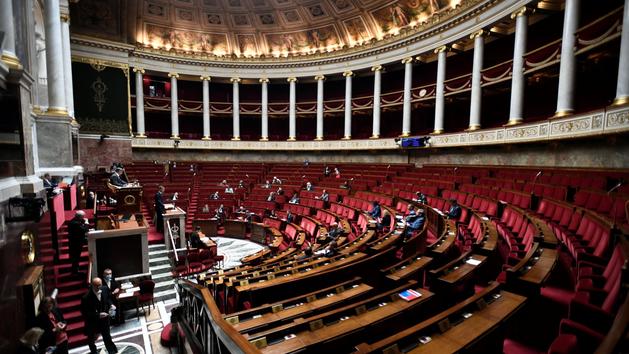Olivia Sarton is a former lawyer at the Paris Bar. She published PMA, which you are not told at Tequi editions.
FIGAROVOX.- What is the “ROPA method” that an amendment to the bioethics bill aims to legalize ?
Olivia SARTON.- ROPA means "Reception of the oocyte by the partner". It is not a method but a provision which has just been ratified by the special committee of the National Assembly to allow egg donation within a couple of women.
Until now, what was provided for in the “MAP for all” bill was that when a couple of women wanted to use MAP, it was one of the two women who was artificially inseminated with the sperm of a donor, carries the child and gives birth. She is thus the biological and genetic mother. Then its filiation is established by means still under discussion before the National Assembly. This principle has been challenged by couples of women who wanted to ensure each of their motherhood vis-à-vis the child who is going to be conceived.
For the examination and the vote of the amendment "ROPA", no member of the government was present: the discussion was entirely guided and trusted by the rapporteur Touraine.That is to say that the couples of women claim a division of the maternity. They want motherhood to be able to be inscribed for both in their body vis-à-vis the child who is going to be conceived. This ROPA provision allows woman number 1 to make an oocyte puncture: one or more of her oocytes are subjected to in vitro fertilization and the embryo thus conceived will be transferred into the womb of woman number 2.
The opposition disputes the advisability of a text imposed under the influence of pressure groups…
What you should know is that this ROPA provision was voted in special committee by the National Assembly. And the conditions of this vote highlight the aberration which consisted in bringing this bill back to the Assembly as a matter of urgency. The government had shaken the agenda to force the consideration of the bioethics bill on the agenda of the Assembly while the deputies had many other priorities. The government was not even present for this committee examination except last night, when they discussed section 4 of parentage. No member was present to examine and vote on the ROPA amendment: the discussion was entirely guided by the rapporteur Jean-Louis Touraine. Opposition MPs were repeatedly surprised and protested.
Until now, both before the National Assembly and before the Senate, the government had opposed the vote on this ROPA provision. For example, before the Senate, the Minister of Health, who was Agnès Buzyn at the time, had declared that the procedure touched on a fundamental principle of medicine which was that of practicing only the medical acts necessary and justified medically. However, the ROPA donation is not there. Even if, however, the Assembly text specifies that the ROPA procedure is only implemented if there is infertility on the side of one of the two women, this infertility criterion is not verified. Unless one of them has no egg production at all, I don't see how a doctor could assess and validate the fertility of a union by definition infertile. Thus, the provision was adopted when the government opposed it.
This is a process deviating from ordinary law, which will however continue to be imposed on heterosexual couples and single women.In addition, this calls into question the rule of law according to which, for gamete donation, the recipient couple must not know the identity of the donor and cannot appeal to an arrow donation. Today, a couple who uses MAP cannot go to a donor and say, "I would like you to give me your oocyte and we will go together to an MAP center . " Unfortunately this is what will be made possible. This is a process deviating from ordinary law, which will however continue to be imposed on heterosexual couples and single women.
Some say it is a disguised form of Gestation for Others (GPA)?
The rapporteur of the bill of course says no, since when you have “gestation for others”, what matters is the term “others”. So we are carrying the child for someone completely foreign. There is no gestation for others but one could speak of “reproductive exploitation”: exploitation can very well take place within a couple of women since there is one who carries a child with whom it has no genetic link. She wears it for her partner. From the moment a woman carries a child conceived with the oocyte of the woman for whom she is carrying it, it is true that we are approaching more and more the extremely fragile limit of the ban on surrogacy in France. In addition, at the same time as this ROPA provision was adopted, the provision of the double donation of gametes questions since in the ROPA device, the woman who carries the child received the oocyte from her partner and the donation of sperm from a third. This is really problematic if the child no longer has any genetic link with the person carrying it.
There is a ratchet effect!Anyway, from the moment you put your finger in the gear there will be drifts. Today the rapporteur of the law, the government and the deputies of the majority affirm that there will never be any ABM in France but there is a ratchet effect: the promoters of these provisions are slowly raising the progress so to be able to go where they want to go.
Read also: "A father is not necessarily a male": when PMA supporters dismiss the real
Is the interest of the child preserved?
It is the exploitation of biology and genetics in the sole interest of adults. When the biological or genetic factor is recognized as important for adults, it is highlighted: in the case of ROPA, women want to use it because they both want to establish a genetic or biological link with the child, so that their motherhood cannot be challenged by the child or by a third party. On the other hand, if it is the interest of the child which requires being able to establish its filiation vis-à-vis the sperm donor, biology is discarded. This poses a first problem. Then, motherhood will not be shared but broken up, since on the one hand there is biological motherhood, that is to say pregnancy, and on the other hand, the genetic link. Children who will be unable to designate their mother will experience a “burst” motherhood and we have no idea today of the possible consequences that this may have on the child's psyche. Especially since we know that when there is a major trauma in a person, the repercussions are felt up to four generations. These are experiments made at the expense of children.
These are experiments made at the expense of children.It also opens the door to the child with several parents. In principle, he will have two mothers. But it remains from a third gamete which is the sperm. As there is legal uncertainty about the fact that the European Court of Human Rights ends up authorizing the child to know his parentage with his biological parent, he will potentially end up with several parents. During the debates, Thibault Bazin raised a reservation on what he called "the combination of devices" . Concretely, this ROPA provision would allow transgender men in couples with a woman to have access to PMA. Indeed, a transgender man, who was born a woman, who made a sex change in the civil status without carrying out an operation - which is legal since a law of 2016 - will be able to make an egg retrieval in the context of this ROPA. The child will be carried by a woman and from the oocytes of a person declared as a man in the civil status, who will be designated as father on his birth certificate. In these conditions we can no longer speak of the child's interests. It is clear that only the interest of adults, their desires or their imagination are taken into account.
Has this provision not been the subject of a sufficiently comprehensive debate in your opinion?
We have more than 1,400 amendments. In theory, the discussions started on Monday evening and were to end on Wednesday evening or Thursday morning. But given the size of the device it was postponed. The time limit is nonetheless extremely limited. We cannot discuss and get to the bottom of things in 3 days. From the moment when we cannot get to the bottom of things, there is no possible debate or taking into account by each of the arguments of each other allowing them to think. This is in principle the whole point of the debate in the National Assembly: the exchange of arguments makes it possible to find a common solution satisfactory to all. Today, however, this is not the case. Moreover, for article 4 on parentage, the amendment was tabled by the rapporteur during the meeting. In other words, the members did not even have the time to examine it to propose amendments. Consideration of the bill is scheduled for Monday while we are being told that there is a possible cabinet reshuffle. We do not even know if Nicole Belloubet will always be Minister of Justice and Olivier Véran will always be Minister of Health… Not to mention the fact that they have not managed to reach a version that can have a minimum of points in common with the Senate version. This means that when the bill goes to second reading in the Senate, it will be completely different and we risk moving towards a joint joint committee. It is clear that the conditions for examining this law have been rushed. The subject is sensitive in the opinion of the French on the one hand but it is also sensitive because we are sweeping fundamental anthropological landmarks.







